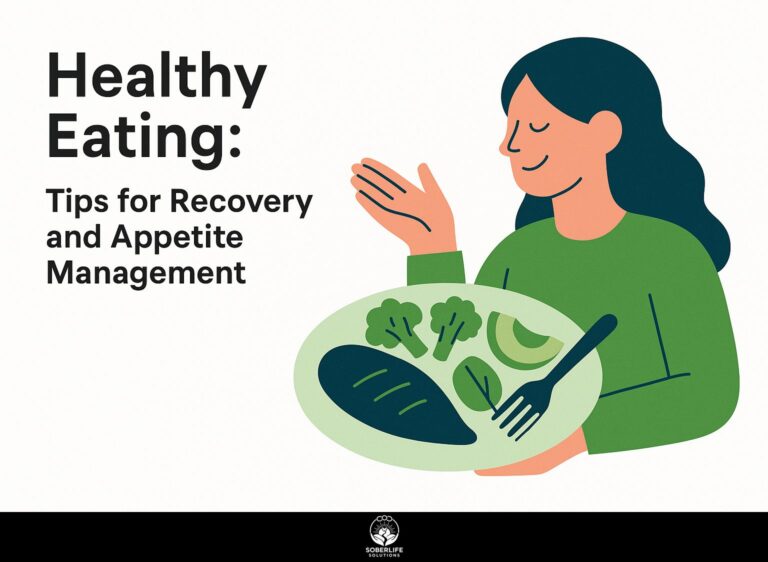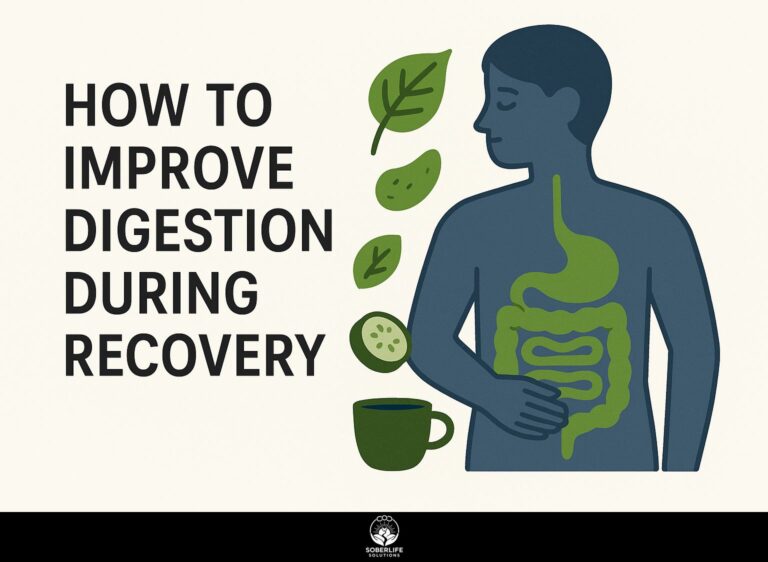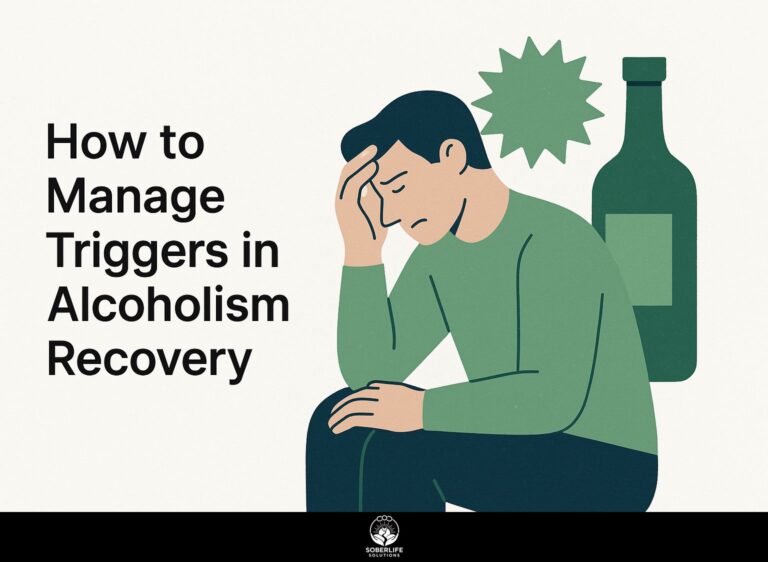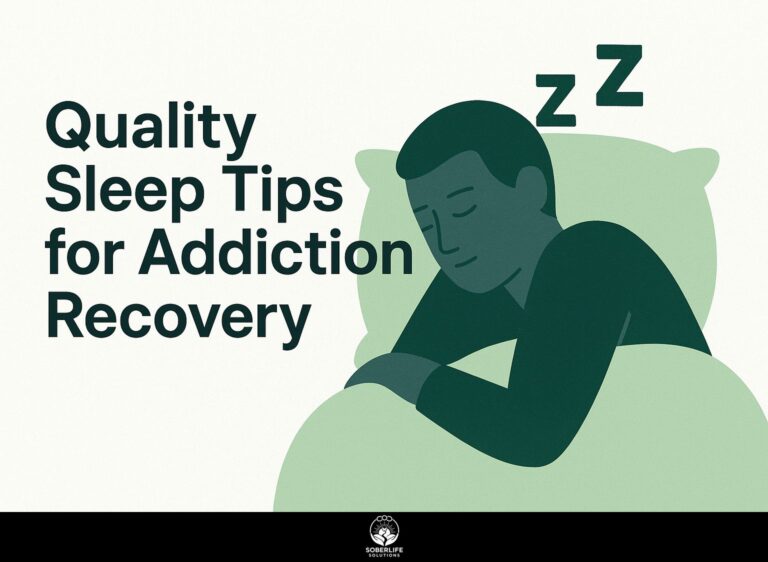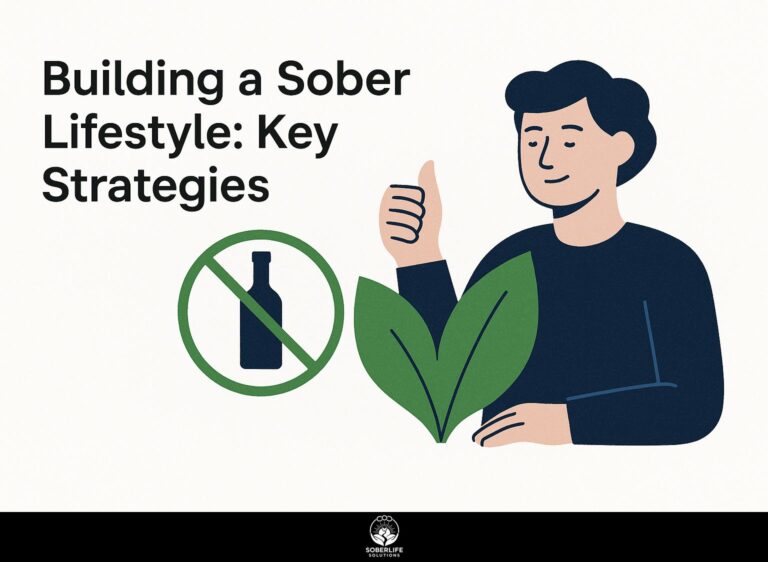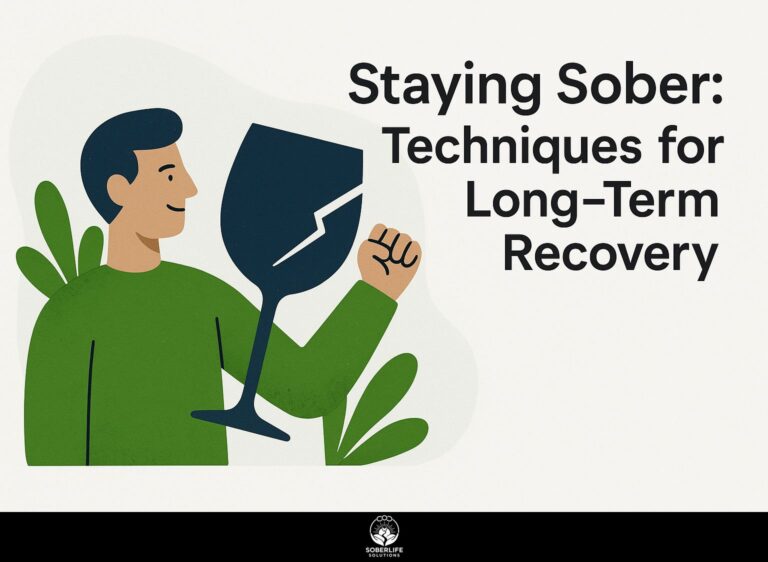Vitamin Supplements in Recovery
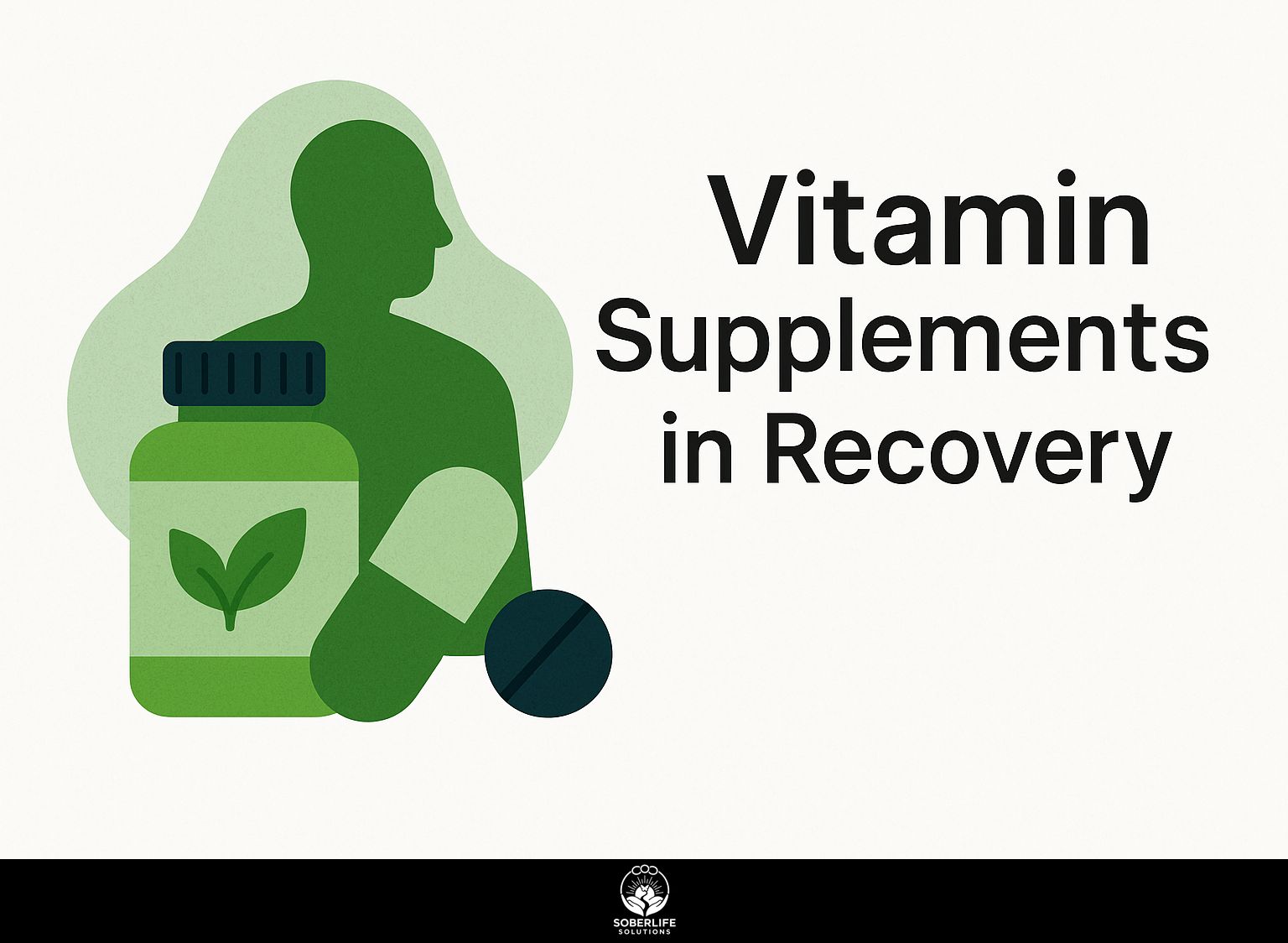
Introduction to Vitamin Supplements in Recovery
Recovering from exercise-induced muscle damage can be challenging, but the right vitamin supplements can significantly aid the process. Vitamins reduce swelling and aid in muscle recovery, which is important for those looking to heal after intense exercise. With many choices available on platforms like Amazon.com, Inc., knowing how these nutrients work is important. This article will look at how vitamins help with recovery and help you pick the right supplements for your needs.
Key Takeaways:
The Role of Vitamins in the Body
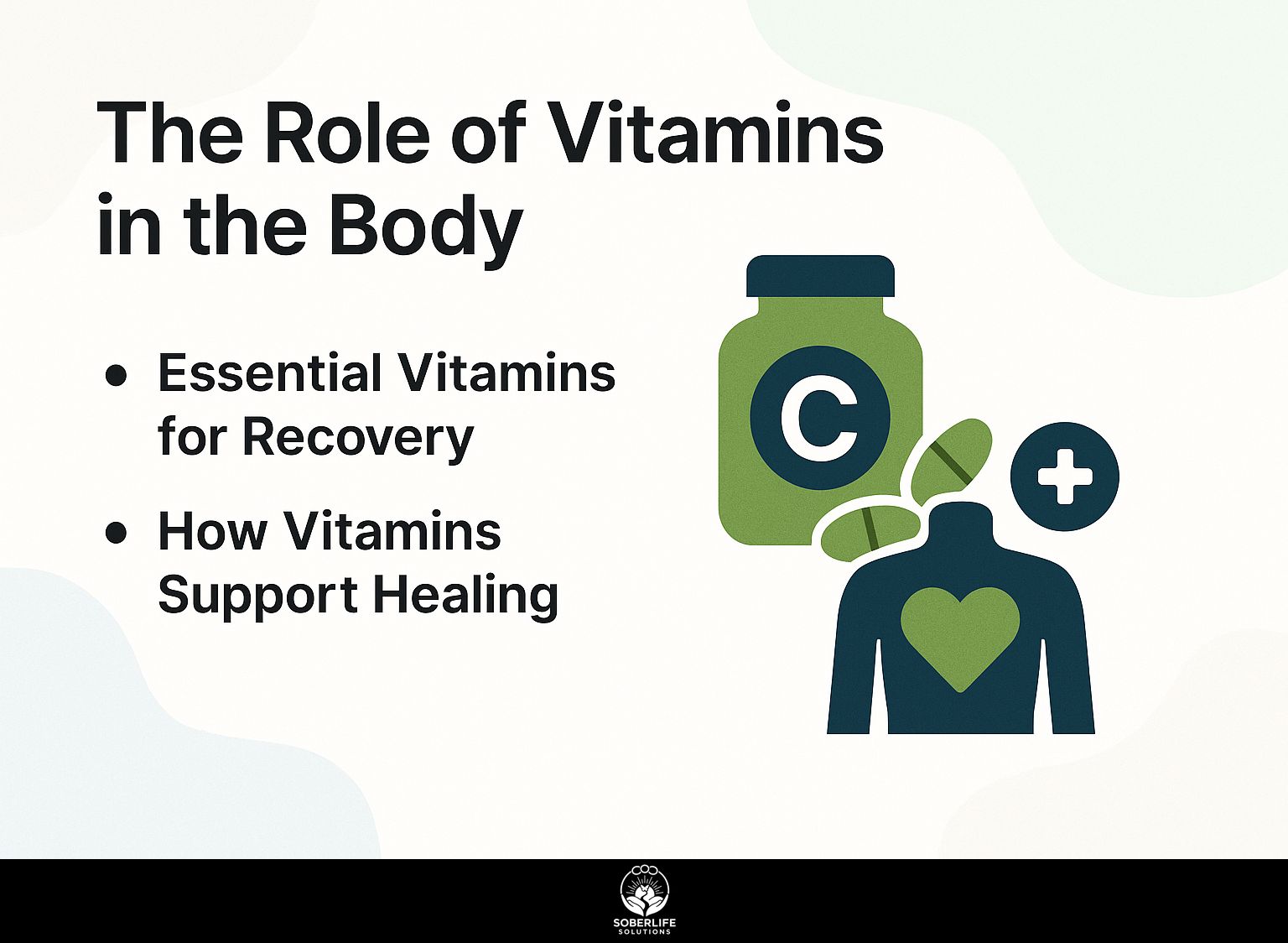
Vitamins are important nutrients that help the body work properly. They aid the immune system, metabolism, and tissue repair, especially when recovering. For those in recovery, integrating vitamins effectively into a diet can be crucial, as explored in the context of nutrition therapy during detox. The importance of vitamins in these bodily functions is highlighted in recent research findings published by MedlinePlus, which provides an in-depth look at how vitamins contribute to overall health.
Essential Vitamins for Recovery
Key vitamins such as vitamin C, E, and the B-complex group are known for their significant roles in muscle recovery and overall health.
To improve recovery, think about these important vitamins:
- Vitamin C (500-1000 mg) helps produce collagen, essential for repairing tissues;
- Vitamin E (15 mg) acts as a powerful antioxidant, reducing oxidative stress;
- B Vitamins, particularly B6 and B12, support energy metabolism-aim for a mix of 1.3-2.4 mg daily;
- Vitamin D (600-800 IU) promotes calcium absorption for stronger bones;
- Vitamin A (900-3000 IU) supports the immune system, important after hard exercise.
Include fruits, nuts, whole grains, and leafy greens in your diet for improved results.
How Vitamins Support Healing
Vitamins promote healing by acting as antioxidants, reducing inflammation, and facilitating cellular repair processes in the body.
Compounds like tart cherry and omega-3 fatty acids are exemplary in supporting post-exercise recovery. Tart cherry extract, rich in anthocyanins, can significantly reduce muscle soreness and improve recovery time.
Research indicates that drinking tart cherry juice before and after hard workouts can improve performance and help with recovery because of its ability to reduce inflammation. Similarly, omega-3 fatty acids, found in fish oil, are known to mitigate inflammation by blocking inflammatory pathways. Expanded context suggests incorporating these elements into a diet may also enhance muscle strength and fatigue resistance. Indeed, ResearchGate highlights the combined impact of omega-3 fatty acids and tart cherry juice in restoring muscle health post-exercise.
Incorporating a daily supplement or increasing intake of fatty fish can effectively support muscle health and overall recovery for athletes.
Types of Vitamin Supplements
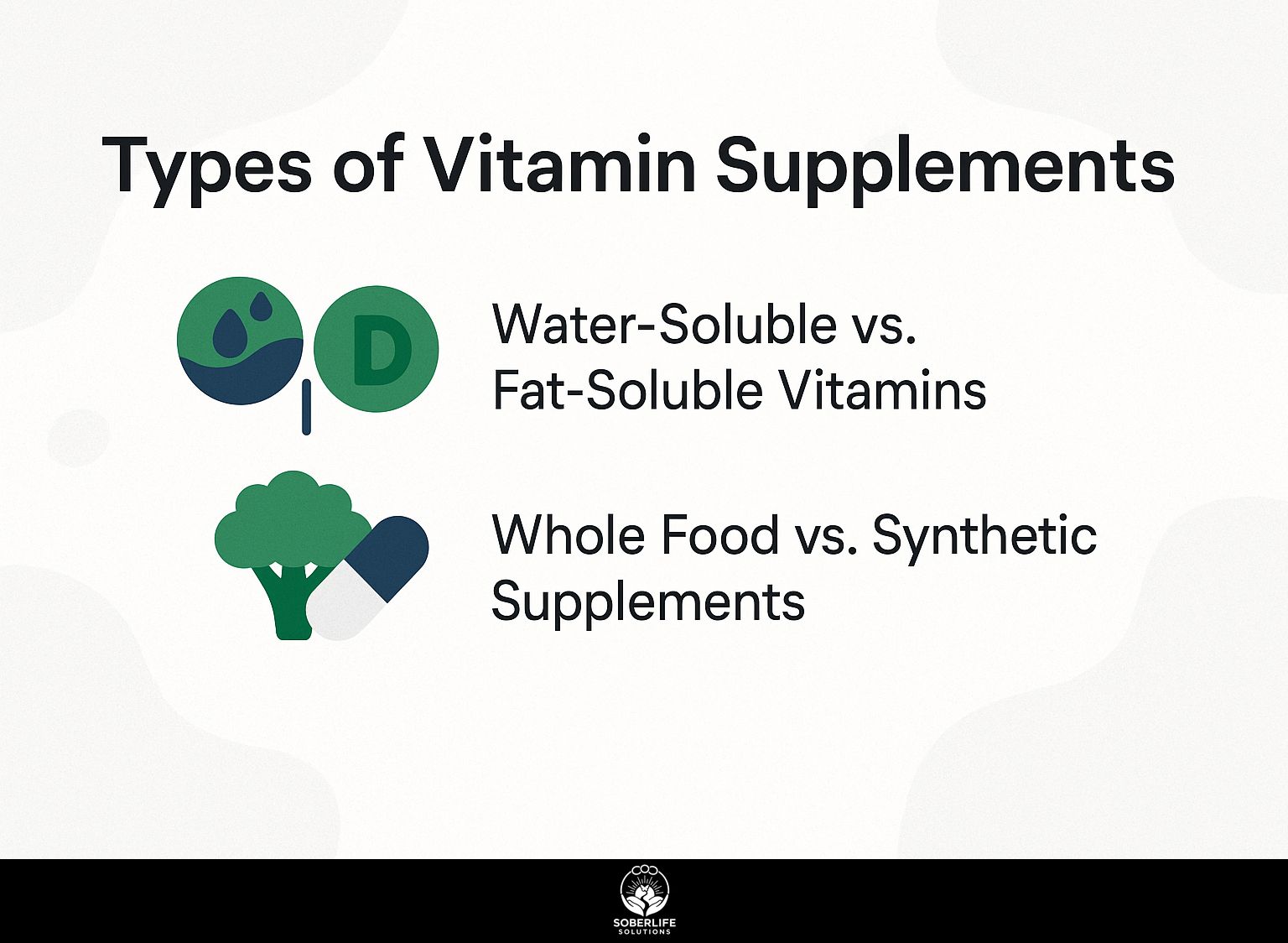
Knowing the various types of vitamin supplements can help individuals choose the right options for their recovery plans. Understanding how these supplements integrate into broader nutrition therapy, especially in the context of alcoholism recovery, can be vital. This approach aligns with the principles outlined in our analysis of Nutrition Therapy: Benefits and Integration in Alcoholism Recovery.
Water-Soluble vs. Fat-Soluble Vitamins
Water-soluble vitamins, such as B and C, are easily absorbed by the body, while fat-soluble vitamins like A, D, E, and K require dietary fats for optimal absorption.
Water-soluble vitamins mix with water, travel through the blood, and are easily used by cells. Good sources include citrus fruits for vitamin C and whole grains for B vitamins.
In contrast, fat-soluble vitamins are stored in body fat and require a fat source-like olive oil or avocados-for absorption. Foods rich in A, D, E, and K include carrots, fatty fish, nuts, and leafy greens.
Knowing these differences can help the body absorb nutrients better, especially for people recovering from sports activities or surgery.
Whole Food vs. Synthetic Supplements
Whole food supplements may be absorbed more easily and provide overall health benefits compared to synthetic vitamins, which can have different levels of effectiveness.
Athletes often prefer whole food supplements like spirulina and chlorella because they help the body take in nutrients more effectively and reduce the risk of side effects compared to taking single vitamins.
Whole foods offer a variety of nutrients, fiber, and antioxidants that work well together, while artificial supplements might give large amounts of certain vitamins, which can cause imbalances.
Whole food supplements are often easier on the stomach, making them a common choice for athletes. Incorporating such options into a balanced diet can complement performance while supporting overall health.
Vitamin Deficiencies and Recovery
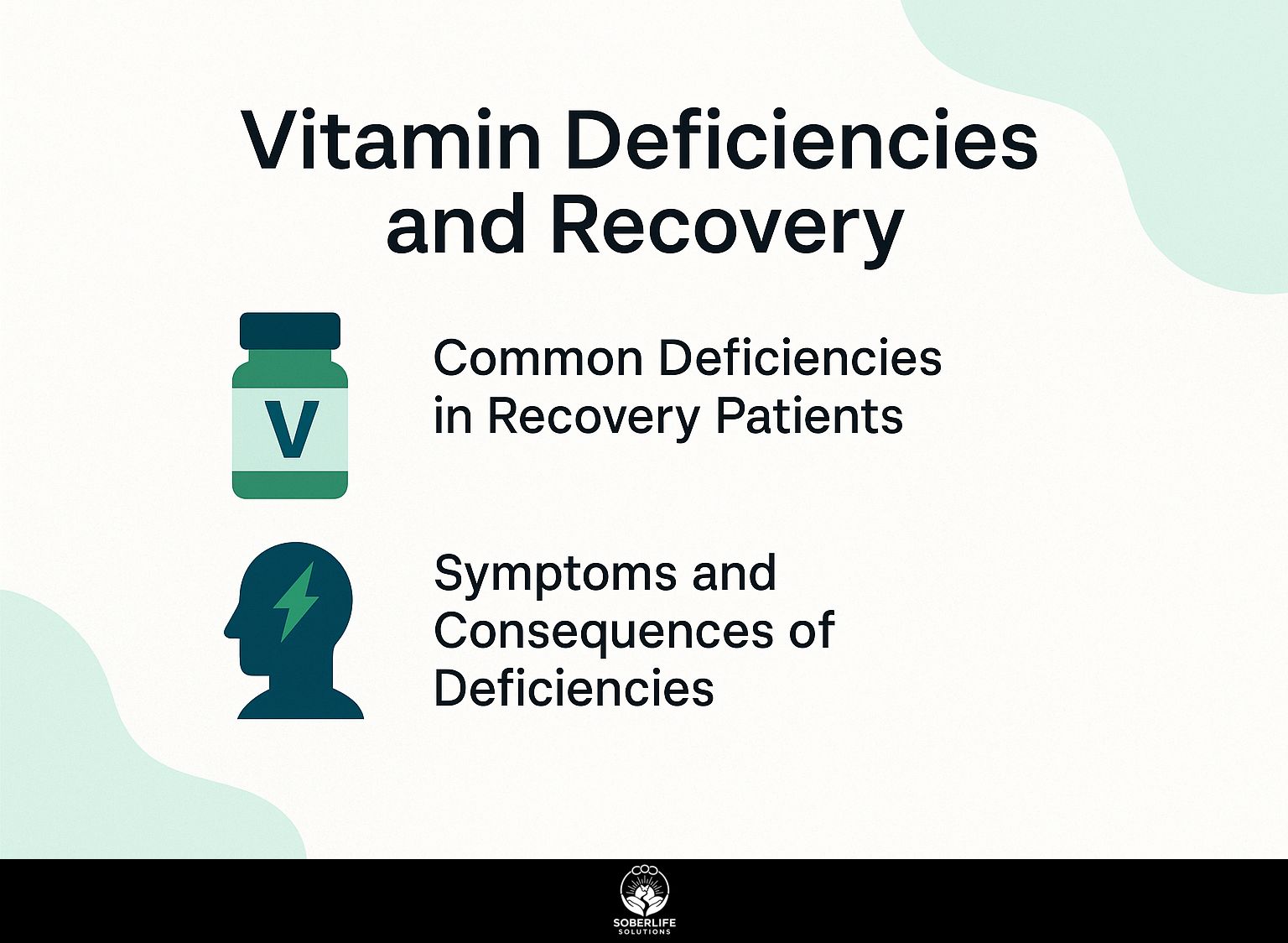
Recognizing vitamin shortages is important for improving recovery because they can cause extended muscle pain and affect performance negatively. To further enhance recovery strategies, consider integrating nutrition therapy, which has shown significant benefits, particularly in the context of alcoholism recovery. Learn more about the benefits and integration of nutrition therapy in alcoholism recovery.
Common Deficiencies in Recovery Patients
Common deficiencies among recovery patients include vitamin D, B12, and iron, each affecting recovery rates and physical performance.
Vitamin D deficiency can lead to muscle weakness and increased risk of fractures, hindering an athlete’s return to form. Similarly, B12 deficiency may manifest as fatigue and neurological issues, impacting training intensity.
Iron is essential for carrying oxygen. A lack of iron can lead to anemia, reducing endurance and stamina. Approximately 30% of athletes report experiencing one or more of these deficiencies during recovery, a finding supported by ScienceDirect’s research into micronutrient inefficiencies in athletes.
Regularly incorporating fortified foods, supplements, or consulting a healthcare professional can significantly aid in addressing these gaps and enhancing overall recovery outcomes.
Symptoms and Consequences of Deficiencies
Symptoms of not having enough vitamins can include tiredness, muscle pain, and weakened immune system, which can greatly affect recovery.
For instance, a study of professional athletes revealed that those with insufficient vitamin D levels reported increased muscle pain and longer recovery times than their peers. Similarly, iron deficiency led to diminished stamina; runners with low iron had to reduce their training intensity to cope with fatigue.
Utilizing a micronutrient tracker app can help athletes monitor their intake. Changing your diet to include leafy greens for iron and fatty fish for vitamin D can help fix these deficiencies and improve your performance and recovery.
Choosing the Right Vitamin Supplements
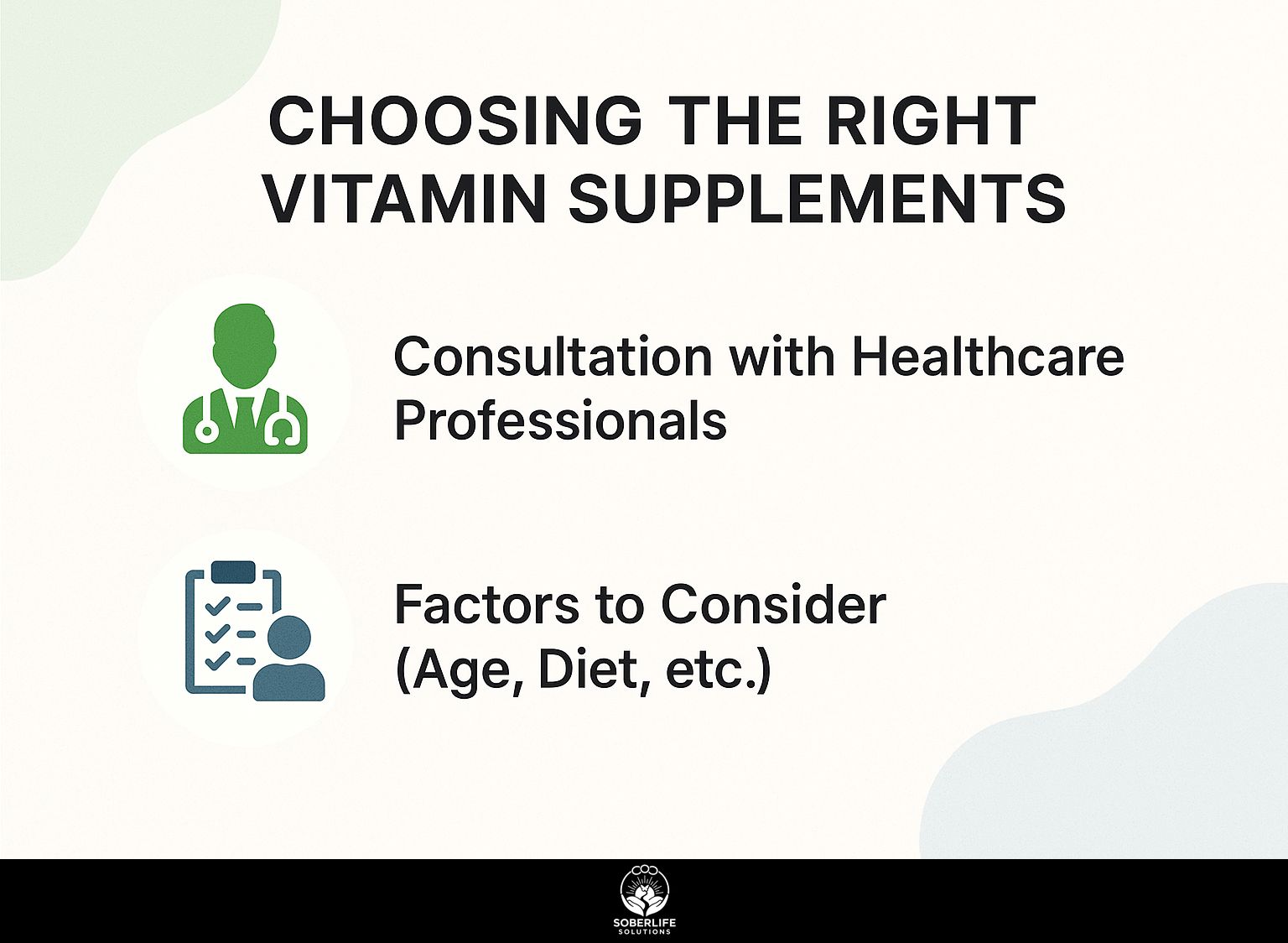
It is important to talk to healthcare professionals to choose the right vitamin supplements that match personal recovery needs.
Consultation with Healthcare Professionals
Engaging with a healthcare professional can help identify specific vitamin needs and avoid potential over-supplementation.
To find a qualified expert, look for a registered dietitian or a certified nutritionist.
Start by using platforms like the Academy of Nutrition and Dietetics’ Find a Nutrition Expert tool. During your consultation, be prepared to discuss your dietary habits, health goals, and any existing medical conditions. This information helps professionals suggest supplements that fit your specific needs.
For instance, if you’re low in vitamin D, they may suggest a specific dosage based on your lifestyle and blood test results. Working with an experienced expert can greatly improve your health and well-being.
Factors to Consider (Age, Diet, etc.)
Different ages, diets, and lifestyles affect how much vitamins people need, so it’s important to adjust supplements to meet these specific needs.
For instance, older adults may require higher doses of vitamin D and B12 due to decreased absorption efficiency. Those with specific medical conditions, like diabetes, might benefit more from vitamin A and zinc to support immunity.
Dietary limitations are important; vegetarians often need extra B12 and iron supplements. Physically active individuals may require more vitamin C and E to combat oxidative stress.
Look at your specific situation and talk to a doctor before deciding on supplements.
Potential Risks and Side Effects
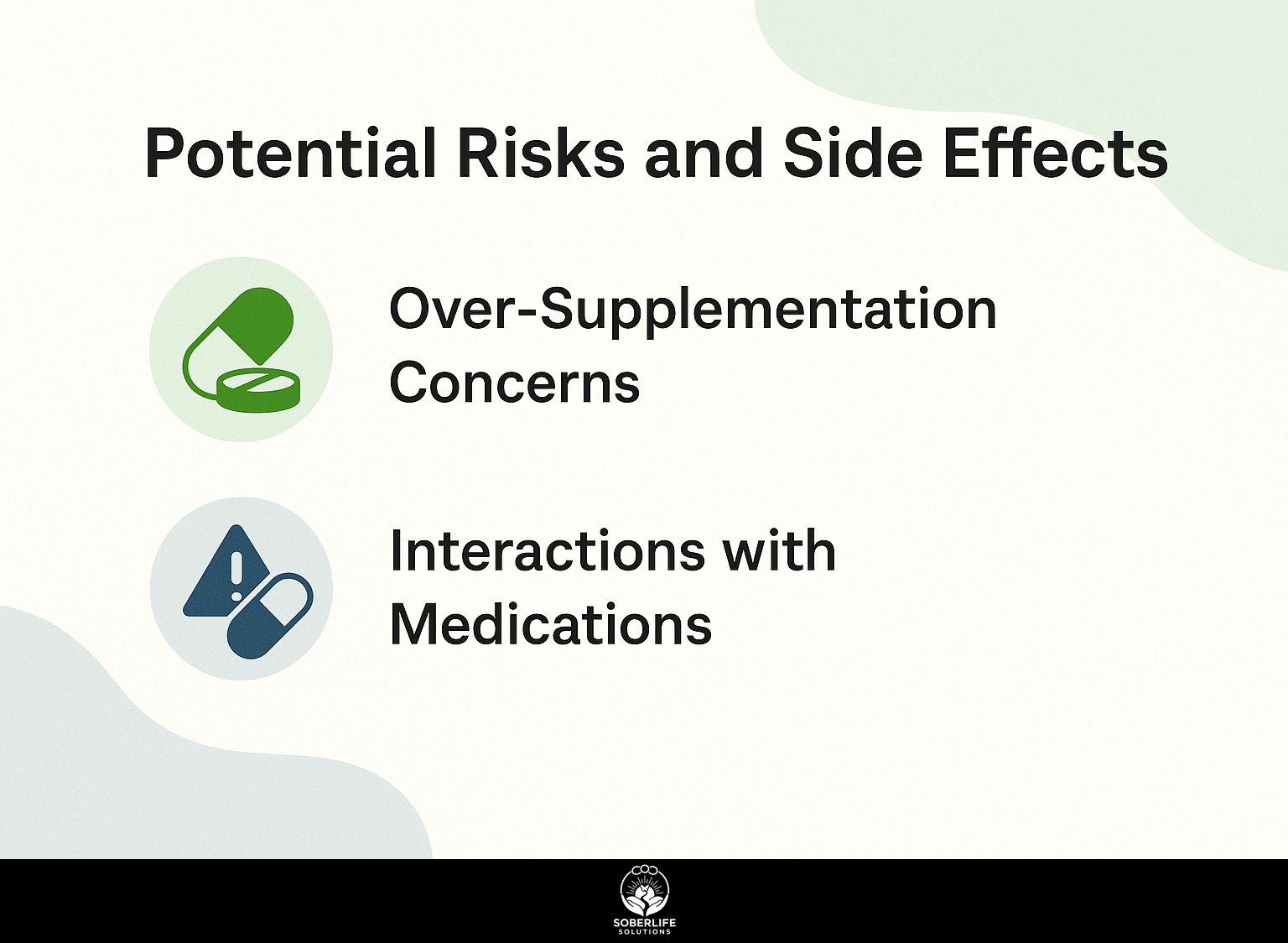
Vitamins help with recovery, but using them wrong can cause issues and side effects.
Over-Supplementation Concerns
Over-supplementation can lead to toxic levels of certain vitamins, resulting in serious health issues, particularly with fat-soluble vitamins.
Vitamins A and D are prime examples of over-supplementation risks. Excessive vitamin A can cause symptoms like dizziness, nausea, and even liver damage, while too much vitamin D can lead to kidney stones and cardiovascular issues.
To stay safe, it’s important to keep track of all the vitamins you consume, both from food and from products with added nutrients. Talking to a doctor before taking new supplements can help make sure they are safe and work well, especially if you already get these nutrients from your food.
Interactions with Medications
Certain vitamin supplements can interact with medications, affecting their efficacy and overall health outcomes.
For example, vitamin K can counteract the effects of blood thinners like warfarin, as it plays a key role in blood clotting. If you’re on blood thinners, you should avoid eating a lot of foods with vitamin K, like leafy greens, or talk to your doctor about supplements.
Vitamin E may increase the risk of bleeding if taken with these medications. Check with your doctor before taking new vitamins or supplements to avoid problems with your existing medications.
Frequently Asked Questions
What are vitamin supplements in recovery?
Vitamin supplements in recovery are supplements that provide essential vitamins and minerals to individuals recovering from addiction or substance abuse. These supplements are designed to support overall health and well-being during the recovery process.
Why are vitamin supplements important in recovery?
Vitamin supplements are important in recovery because substance abuse and addiction can deplete the body of essential nutrients. These supplements can help replenish these nutrients, support the body’s healing process, and improve overall health and well-being.
What types of vitamin supplements are recommended in recovery?
The types of vitamin supplements recommended in recovery may vary depending on an individual’s specific needs. Some often suggested supplements include B vitamins, vitamin D, and vitamin C, along with minerals like magnesium and zinc.
Are vitamin supplements in recovery safe to take?
Yes, vitamin supplements in recovery are generally safe to take. Before you start any new supplements, it’s a good idea to talk to a healthcare professional, particularly if you take medications or have existing health issues.
How can vitamin supplements in recovery benefit mental health?
Taking vitamin supplements during recovery can help improve mental health. These supplements can help improve mood, reduce anxiety and stress, support cognitive function, and promote overall mental well-being.
Can vitamin supplements in recovery be used as a substitute for a healthy diet?
No, vitamin supplements in recovery should not be used as a substitute for a healthy diet. While these supplements can provide important nutrients, they should be used in conjunction with a balanced and nutritious diet for optimal health benefits.

